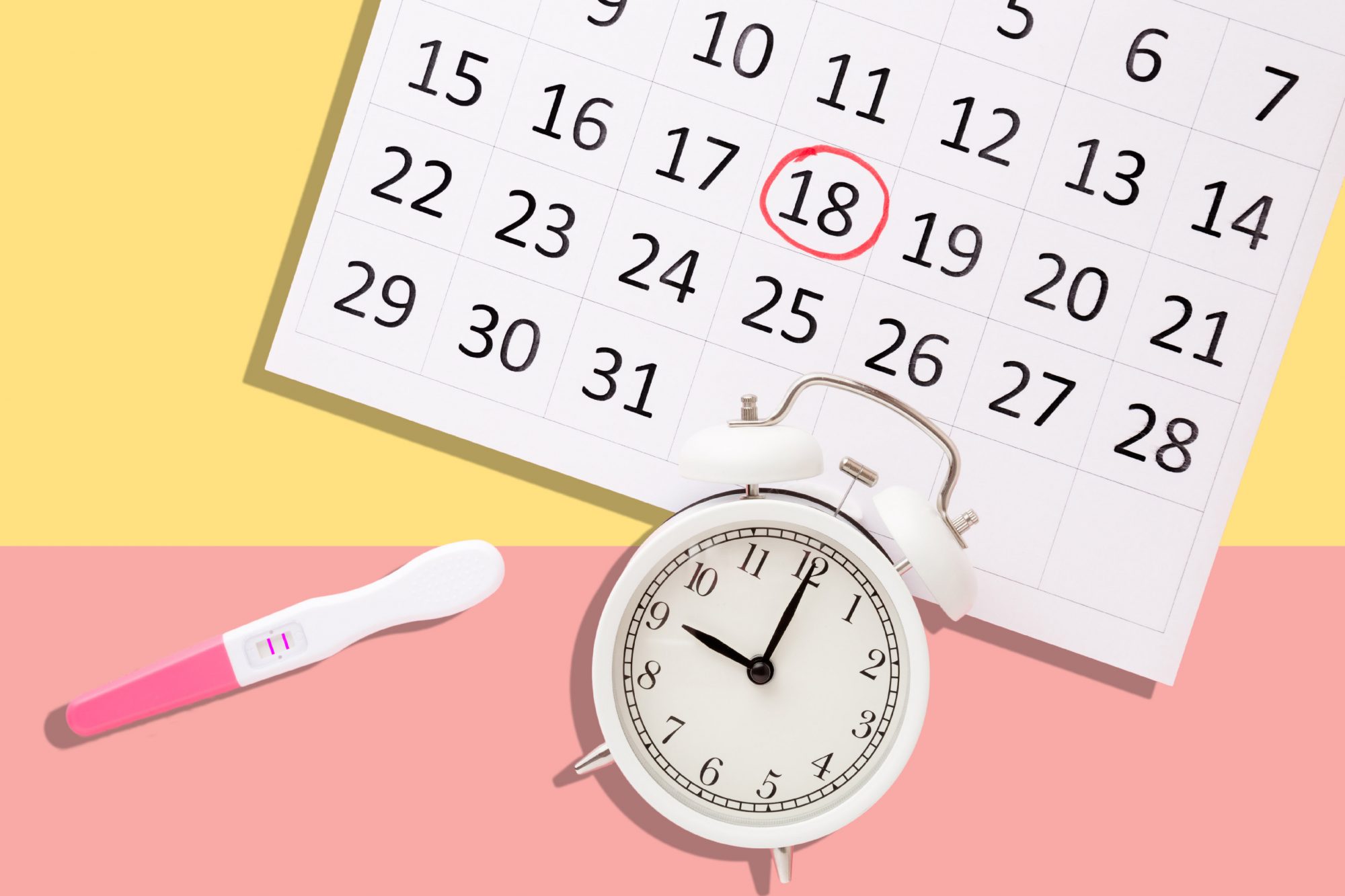
If you're wondering whether or not you're pregnant, there's an easy—and pretty darn reliable—way to find out. "Home pregnancy tests have come a long way over the years," says Stephen Rechner, M.D., the Division Chief of General Obstetrics and Gynecology at Spectrum Health in Grand Rapids, Michigan. "They can now detect pregnancy earlier and are accurate most any time of day." But, he explains, you can increase your chances of accuracy by getting the timing right. Here's what to know about the best time for a pregnancy test.
When is the Best Time to Take a Pregnancy Test?
Waiting to find out if you're expecting can be nerve-racking—but you're less likely to get an accurate pregnancy test before a missed period. Here's why: A embryo implants in the uterine wall about six to 10 days after fertilization, and it will start producing a pregnancy hormone called human chorionic gonadotropin (hCG). Pregnancy tests work by detecting hCG in your urine, but it can take some time for your body to produce enough for an accurate result.
In general, "a urine test needs 50 units of hCG to test positive," explains Daniel Roshan, M.D., an OB-GYN at Rosh Maternal-Fetal Medicine in New York City. Every pregnancy is different—you might have 50 units even before your missed period, or it could take a little longer to produce that amount.
In other words, the amount of hCG in a woman's urine can vary up until the time she misses her period. Some women may see a positive test before her missed period and others might not.
What About Early Detection Pregnancy Tests?
Some pregnancy tests claim to pick up hCG before your missed period—but there's no guarantee. Pregnant women have varying amounts of hCG until missing their period; these "early detection" tests could work for some women and not for others. Check your pregnancy test's packaging to learn more about the accuracy.
That said, you might be able to increase your chances of getting a correct reading. For example, the morning is the best time of day to take a pregnancy test because your urine has a higher concentration of hCG when you first wake up. And no matter when you're taking the test, follow the package instructions closely, and don't take a pregnancy test that has expired.
I Got a Negative Pregnancy Test—Could I Still Be Pregnant?
Yes! Home pregnancy tests can give false negative results (and in rare cases, false positive results). As Dr. Roshan explains, a woman's hCG level doubles every 48 to 72 hours, so if you really are pregnant, it won't be negative for long. Take another test in a few days—or around a week after your missed period—and you can trust the results.
You should also take a pregnancy test if you notice early pregnancy symptoms, which include breast tenderness, mild cramping, implantation bleeding (light spotting), fatigue, and slight nausea.
It's important to call your doctor as soon as possible once you find out you're pregnant. That way, you can get the prenatal care and counseling you need to have a healthy pregnancy.
